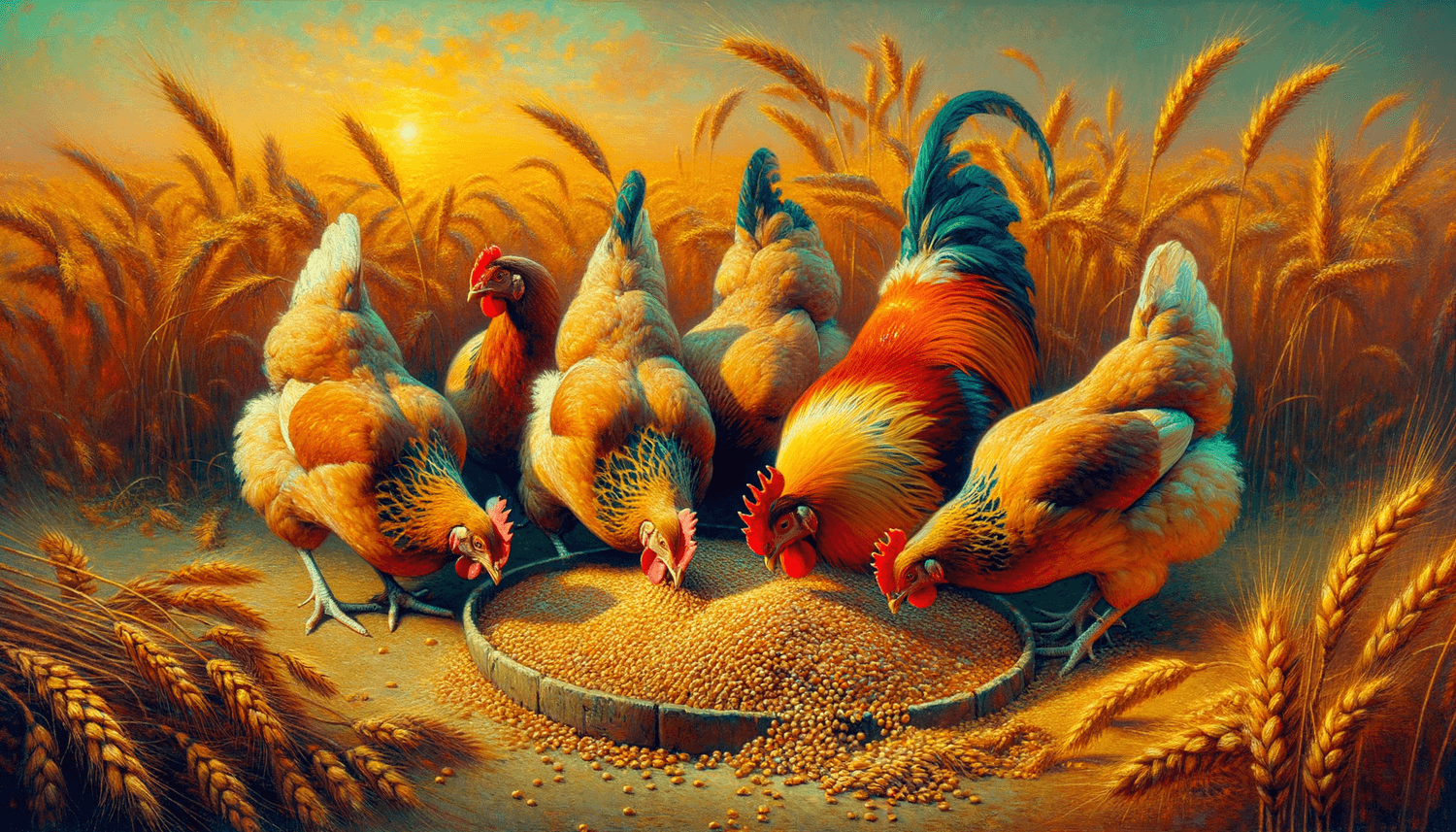Yes, chickens can eat malted barley. Malted barley is safe for chickens in moderation, containing essential nutrients that can benefit poultry health. However, due to its high carbohydrate content, it should be given sparingly to avoid potential weight gain and digestive issues.
Quick Summary
- Chickens can eat malted barley.
- Malted barley is nutrient-rich but high in carbohydrates.
- While there are benefits associated with its nutritional content, there’s a risk of weight gain and digestive issues if overfed.
- Feed malted barley in moderation as part of a varied diet.
Overview of Malted Barley
Malted barley is a grain that has been allowed to germinate slightly before being dried in a kiln. This process develops enzymes that break down starches into simpler sugars, making it a key ingredient in brewing beer and distilling. Nutritional components include carbohydrates, proteins, some essential vitamins, and minerals, making it a potential supplementary food source for chickens.
Benefits and Risks of Malted Barley for Chickens
Malted barley can offer several benefits to chickens, including the provision of energy, protein, and essential nutrients that can aid in their growth and egg production. However, if chickens consume too much malted barley, it can lead to obesity and digestive problems due to its high carbohydrate content. The sugar content of malted barley can also promote unhealthy bacterial growth if not fed in moderation.
Feeding Guidelines
Malted barley should be considered a treat rather than a staple of a chicken’s diet. It’s suggested to provide malted barley in small quantities, ideally mixed with other grains, and not exceeding 10% of the chicken’s total diet. Always ensure that chickens have access to a balanced diet suitable for their species, including commercial feeds designed to meet their specific nutritional needs.
Alternatives
If you are looking for alternatives to malted barley, consider other grains such as oats, wheat, or corn, which can be given to chickens in small, controlled amounts. These grains also provide energy and nutrients but with a different nutrient profile to ensure a balanced diet.
Expert Opinions
Poultry nutrition experts agree that diversity is key in a chicken’s diet. While malted barley can be a good source of nutrients, it should not replace a balanced poultry diet. Consult with a veterinarian or a poultry nutritionist to create a diet that supports the health and productivity of your flock, especially if you’re considering substantial diet changes.
Frequently Asked Questions
After learning about the inclusion of malted barley in a chicken’s diet, you might still have some questions. Here are some commonly asked questions and their answers.
Is malted barley harmful to chickens in any way?
While not inherently harmful, malted barley when fed in excessive amounts can lead to obesity and digestive issues in chickens. Its high carbohydrate and sugar content should be moderated in a chicken’s diet.
How often can I feed my chickens malted barley?
Malted barley should be fed sparingly. It’s best served as an occasional treat rather than part of the regular diet, making sure it doesn’t exceed 10% of their total dietary intake.
Can I replace commercial feed with malted barley for my chickens?
It is not advisable to replace commercial chicken feed with malted barley. Commercial feeds are formulated to meet all a chicken’s nutritional requirements, while malted barley should only serve as a supplementary treat.

















